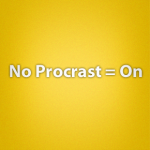Welcome to The Startup Foundry.
Why entrepreneurs and founders often have trouble sleeping: Closure.
Paul Hontz
TSFPublished: Apr 1, 2011 4:21 pm

When I’m physically exhausted and craving sleep I close my eyes and I see code. Methods and variables gleefully dance on the inside of my eyelids and new ideas pulse through my veins. My brain doesn’t care it has spent the last 12 hours focused on my startup, it wants more. It’s addicted.
Last night was no different. After an hour of unsuccessful negotiation with my body to go to sleep, I admitted defeat and jumped on the computer and worked so I could get my fix. After several hours, I decided to send out a quick tweet to see who else was hacking away at 3:30 am. An outpouring of entrepreneurs began to flood my Twitter timeline.
It appears I am not alone.
Background:
I never had this problem when I was working a 9-5 job. My sleeping problems began when I started working full time on my startup. I’ve tried changing my diet, exercising more (I’m already pretty active), and Ambien without having much success sleeping.
My Diagnosis:
After talking with several other entrepreneurs (and my own personal experience), I believe that founders often have trouble getting closure in a work day. For most people working a corporate 9-5 job, they can checkout the second the clock strikes 5 and have little trouble leaving their “work at work” (not always true, but I’m speaking in generalities).
Entrepreneurs aren’t afforded that luxury. An entrepreneur has his fingerprints all over the company and the startup often reflects much of the founders personality. I’ve found that so much of myself is wrapped up in my business that it can be hard to mentally check out at the end of the day.
It doesn’t help that I had an arbitrary goal of “making it big” without any clear definition of what that actually meant.
My Solution:
Figure out your end goal. If you could snap your fingers and give your startup success, what would that look like? After you have this big picture view of your company, break down your success into steps you can take. Then start a checklist of things you must get done each day to move you forward. Doing this helps you get “closure for the day” by reminding you that you’re actually making progress.
Remember, you are a separate entity from your startup.
If you have any other advice, I’d love to hear it in the comments. I don’t have this issue completely figured out, and I would appreciate additional insight.
Please follow us on Twitter @startupfoundry.
-
👉 Filed Under.
Categorised in: Strategy
Get Connected:
If you like startups, join our weekly mailing list. Good startup content, no fluff.
👇

Hi, I'm Paul Hontz.
I'm a YC alumn and I love startups. I created TSF to highlight companies I find interesting. You can learn more about me here.
Recent Posts:

The Story of Cruise (YC W14): How 4 people built a self driving car in 7 months.
Jul 8, 2014 2:35 pm

I Want To Write About Your Startup – Relaunching TSF
Jan 17, 2014 5:14 pm

How To Do B2B Email Sales
Nov 23, 2011 2:12 pm

Nasty Bug in iOS 5.0.1 OTA Update screws up Address Book on the iPhone 4S
Nov 10, 2011 11:56 pm

It’s Easier to Answer to Your Code Than Your Customers
Oct 28, 2011 2:25 pm


